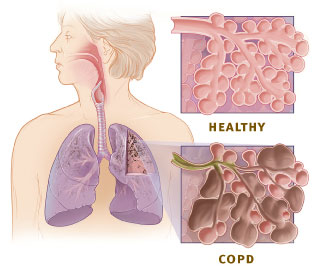There has been considerable interest in Vitamin D in preventing and suppressing some disease processes. It is said that apart from bone health it helps the patients of asthma, diabetes, prostate cancer, breast cancer and heart disease.
Researchers at National Jewish Health have discovered specific molecular and signalling events by which vitamin D inhibits inflammation.
In their experiments, they showed that low levels of Vitamin D, comparable to levels found in millions of people, failed to inhibit the inflammatory cascade, while levels considered adequate did inhibit inflammatory signaling. They reported their results in the March 1, 2012, issue of The Journal of Immunology.
Patients with chronic inflammatory diseases, such as asthma, arthritis and prostate cancer, who are vitamin D deficient, may benefit from vitamin D supplementation to get their serum vitamin D levels above 30 nano grams/millilitre.
Through a complex series of experiments, the researchers identified a new location where the vitamin-D receptor appears to bind directly to DNA and activate a gene known as MKP-1. MKP-1 interferes with the inflammatory processes mediated by lipopolysaccharide (LPS), a molecule associated with bacterial cell walls.
| 20/2.2011 vitamin D (Photo credit: julochka) |
Researchers at National Jewish Health have discovered specific molecular and signalling events by which vitamin D inhibits inflammation.
In their experiments, they showed that low levels of Vitamin D, comparable to levels found in millions of people, failed to inhibit the inflammatory cascade, while levels considered adequate did inhibit inflammatory signaling. They reported their results in the March 1, 2012, issue of The Journal of Immunology.
Patients with chronic inflammatory diseases, such as asthma, arthritis and prostate cancer, who are vitamin D deficient, may benefit from vitamin D supplementation to get their serum vitamin D levels above 30 nano grams/millilitre.
Through a complex series of experiments, the researchers identified a new location where the vitamin-D receptor appears to bind directly to DNA and activate a gene known as MKP-1. MKP-1 interferes with the inflammatory processes mediated by lipopolysaccharide (LPS), a molecule associated with bacterial cell walls.
...
Click here to Subscribe news feed from "Clinicianonnet; so that you do not miss out anything that can be valuable to you !!
...






